December 1942 – January 1943
North Africa: Training and Replacements
(Posted 15 December 2002)
December 1942
The 1st Ranger Battalion had more than proven their value in the war effort with the well executed surprise night landing at Arzew, North Africa. Preparations were in progress to initiate the creation of a 2nd Ranger Battalion. This decision-making activity was taking shape in England within the Headquarters European Theater (ETOUSA).
At this time the Rangers were staying in the beach huts, or vacation villas of sorts, near Arzew. The villas had marble floors where the Rangers slept for a good long time after their successful mission in Arzew, on those hard stone floors. They spent their days and nights training, doing speedmarches, calisthenics, cliff climbing and yet more amphibious landing exercises. Based on their targeted training, they felt there was a specific mission in the works for them, but were unaware of what that might be. This was the life of all World War II Rangers, never knowing when, or where they would be called to action.
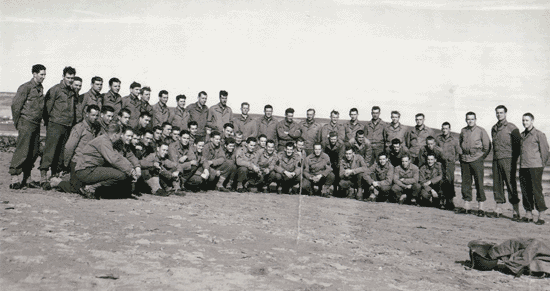
Photo courtesy Ranger Bill Arimond 1st/3rd Ranger Battalions
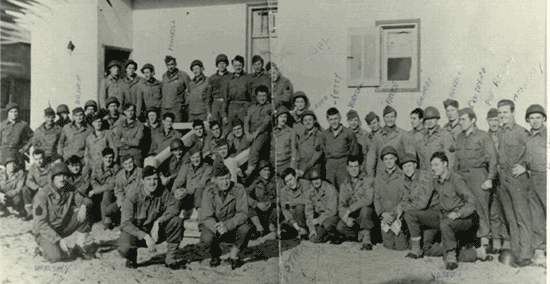
Photo courtesy Ranger Gino Mercuriali 1st Ranger Battalion
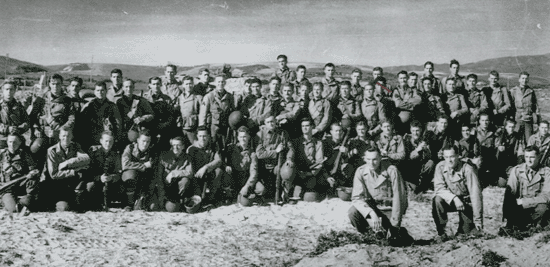
Photo courtesy Ranger Donald Frederick 1st/4th Ranger Battalions
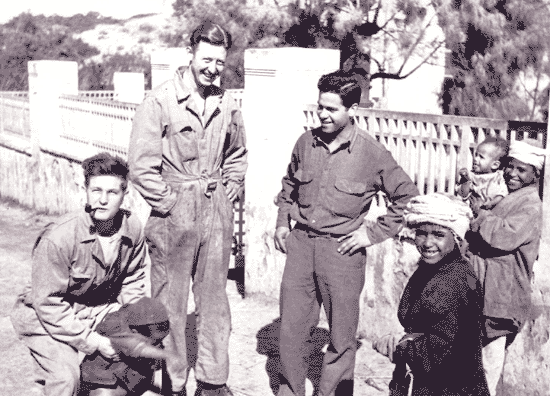
Photo courtesy Ranger Donald Frederick 1st/4th Ranger Battalions
Finally, after a long stay in the villas along the coast near Arzew, the orders came to attack an island near Sicily on New Year’s Eve. They were loaded into boats, and in route to their mission, when a storm came up making it impossible for the coxswain to maneuver the landing craft onto the shores. This mission would have secured the island in true Ranger fashion, where they would have attacked by surprise in the dead of night, greatly reducing the number of civilian lives lost. But, due to the high seas from the storm, their mission was aborted. Instead, the island was bombed, which resulted in a high cost of civilian lives.
This is noted here to stress the significance of future Ranger missions where they would spearhead an invasion, or raid by night in a complete surprise attack, securing seaports, airports, and towns. Only then, would the supporting troops and machinery land to maintain these areas. The element of surprise executed by the Rangers often resulted in surrenders and fewer lives lost. It also eliminated civilians, caught in a fierce battle, from losing their lives.
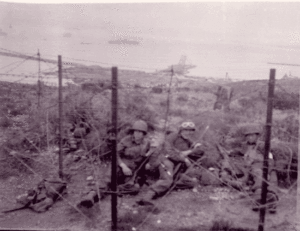
Note the ships in the background holding troops who landed only after the Rangers secured the area
Photo courtesy Ranger Donald Frederick 1st/4th Ranger Battalions
The Rangers still credit their many successes to this day, to their commanders, and the expert training they received. It was the preparedness they gained from the endless training that enabled them to go in as a small band and secure large areas where they were almost always outnumbered by the enemy. The element of surprise eliminated the loss of lives and allowed them to secure an area in record time, often before the enemy knew what had hit them.
January 1943
The 1st Ranger Battalion welcomed replacements. They had been isolated from the general population and with the new 100, or so replacements, came flu’s and illnesses they hadn’t been exposed to. So, at this time, the original 1st Rangers spent some time sick with colds and flu's that came in with the new Rangers.
References: Rangers in World War II, by Robert W. Black, 1st Battalion Rangers who were there.
If you have something to offer the timeline, please Contact Us
 DESCENDANTS OF WWII RANGERS, INC
DESCENDANTS OF WWII RANGERS, INC 